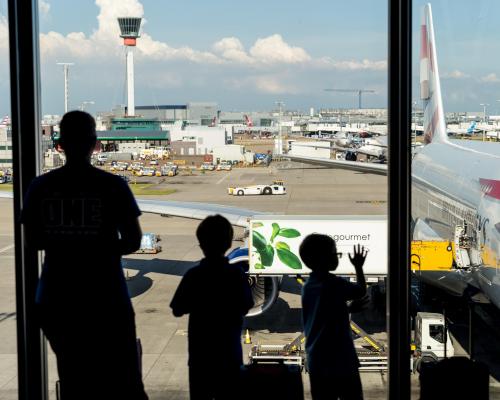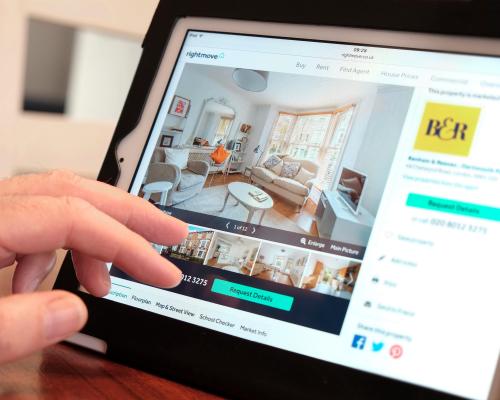
It started as a cry for help that went viral. Rachel Crampton was facing a 23-hour flight with three children under the age of five. Unable to recruit a family member or friend to help out, she took to social media and offered a sizeable cash payment – A$1,000 (about £560 at the time) – to someone who would accompany her on the epic London-to-Sydney flight.
Crampton, a Briton based in Sydney, was inundated with responses and found an “amazing Aussie girl” living in London who was homesick but could not afford the flight back to Australia.
She has since turned that experience into a business which has just launched in the UK after success in Australia. Her website, Juurnee, matches those who want help on a flight with people willing to be their travel companion.
Those needing help could include a parent travelling solo with toddlers, an older person requiring some assistance, someone with a disability, an unaccompanied child, or a nervous flyer.
The companion receives a payment that will cover part, or all, of the cost of their flight.
At the time of writing there were 30 live requests for help on the site. These included a London-to-Switzerland return flight, where the full cost is offered to someone who can help an older passenger who uses a wheelchair; and a London-to-Sydney return trip, with 50% of the flight cost paid, for someone who can help a mother with her one-year-old (there is an option to help just one way).
Crampton says more than 12,000 people have signed up to be a companion and many are qualified teachers, nurses, midwives, childcare workers and others who have clearances to work with children, or qualifications to assist people with disabilities.
But she adds: “You don’t need to be a nanny or nurse – just a decent person willing to lend a hand.”
People seeking a companion can post their offer for free and don’t pay for a successful match. They list the route, the date, the flight details and the sum they are willing to pay someone to travel with them.
They can choose their own payment amount, although the website recommends 50% to 100% of a companion’s flight cost.
Companions sign up for free and can view the offers, but pay a £15-a-year subscription to be able to message people directly to offer their services. They buy their own flights, so, to that extent, the person who needs help is not responsible for them.
Once a companion has applied for an offer, the person requesting help has 14 days to accept and match with them. If selected, the companion will be put in touch with the individual needing help.
Crampton recommends companions get paid at the end of the trip, and that an escrow service is used to hold the payment from when the agreement is struck until 48 hours after landing. “At the moment we are recommending our matched travellers use Escrow.com,” she adds.
There is no official “contract” between the two parties provided by the site – for example, outlining what is expected of the companion – but Crampton says users are free to create one themselves. The website does provide a guide that covers different scenarios.
What if the companion doesn’t turn up at the airport? “We haven’t had this situation crop up just yet,” says Crampton.
If, say, the companion rearranged their flight, they would not be paid their fee. “Hopefully, they would inform Juurnee, or the person they were meant to be helping, in advance, and then we can find another companion,” she says.






